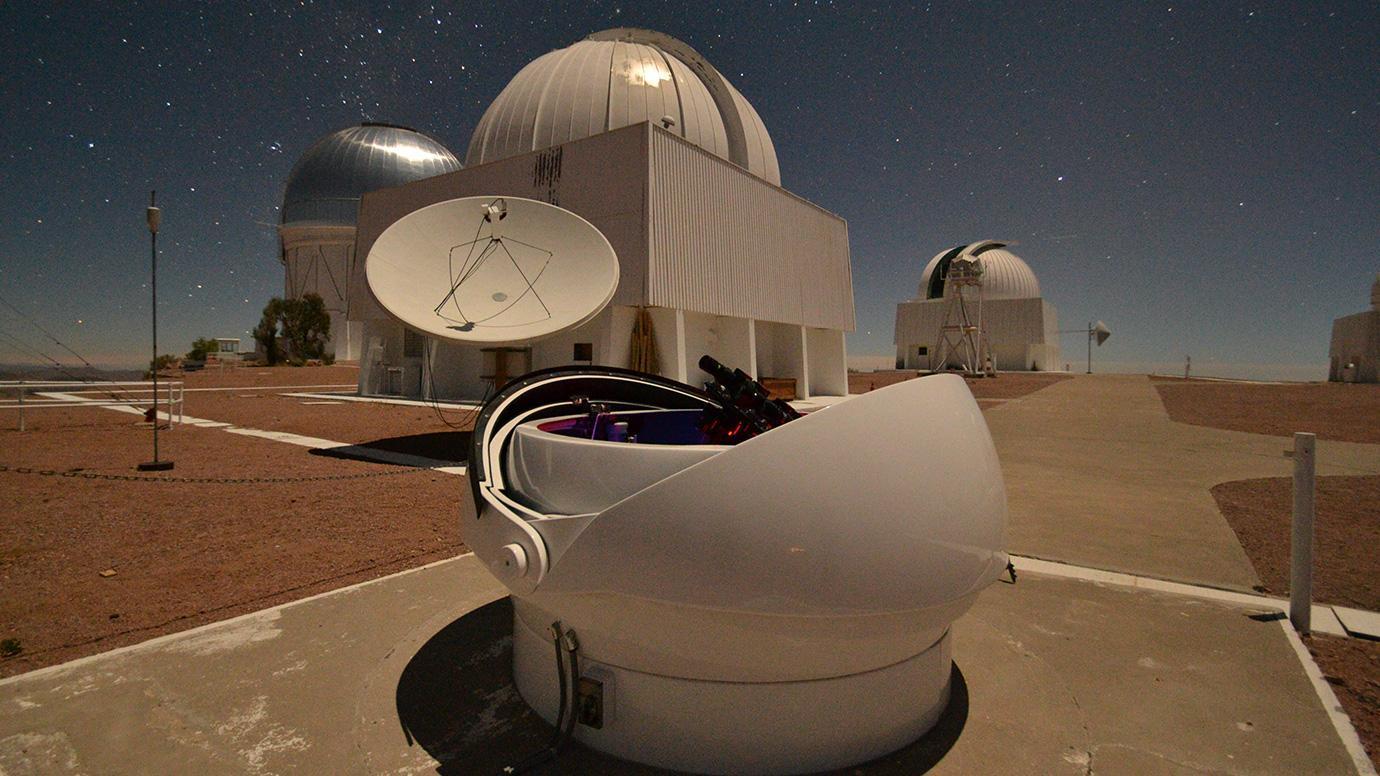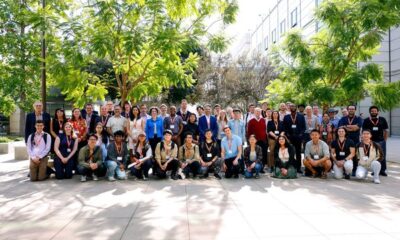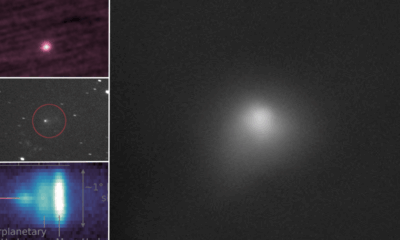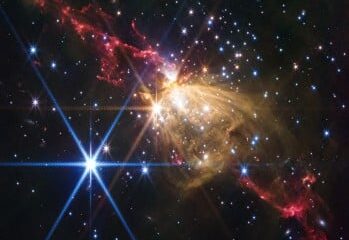Science
Scientists Unravel Dark Energy’s Evolution Through New Research

Recent research suggests that Dark Energy, a fundamental force driving the expansion of the Universe, may not be constant as previously thought. A study led by researchers from the University of Chicago indicates that Dark Energy could evolve over time, presenting a significant shift in our understanding of the cosmos.
The concept of Dark Energy has been pivotal since the discovery of the Universe’s rapid expansion, initially confirmed by astronomers Edwin Hubble and Georges Lemaître in the 1920s. This phenomenon, known as the Hubble-Lemaître Constant, has sparked ongoing debate among astrophysicists, particularly regarding the “Hubble Tension” that emerged in the 1990s. This tension refers to the discrepancy between early Universe expansion rates and measurements from more recent epochs.
With the launch of the James Webb Space Telescope (JWST), scientists hoped to clarify these inconsistencies. Instead, Webb’s observations revealed that the Universe expanded at a significantly faster rate in its infancy, deepening the mystery surrounding Dark Energy. The latest findings suggest that Dark Energy might not be static but could be changing, leading to new theories, including Early Dark Energy (EDE).
Researchers Anowar J. Shajib and Joshua A. Frieman conducted a study combining data from the Dark Energy Survey (DES) and Dark Energy Spectroscopic Instrument (DESI). Their work, published in Physical Review D, suggests that the Universe’s expansion will continue at a slower rate over time, challenging the long-held assumption of a constant Dark Energy density.
The study builds on previous theories from the 1990s that proposed Dark Energy could have dynamic properties. Observations from various missions, including the Wilkinson Microwave Anisotropy Probe (WMAP) and the Planck space telescope, have indicated that the Cosmological Constant, initially introduced by Albert Einstein to counter gravity, may not be so unchanging after all.
Shajib and Frieman found that over the past several billion years, Dark Energy’s density has decreased by approximately 10%. While this reduction is modest compared to other forms of matter and energy in the Universe, it carries significant implications for cosmic evolution. They proposed a model based on particle physics theories involving a hypothetical particle known as axions, which could account for Dark Energy’s behavior.
In their model, an ultra-light version of axions could have acted as a constant form of Dark Energy for the first several billion years, before beginning to evolve and lose density. If this model holds true, the implications for the future of the Universe are profound. The acceleration of cosmic expansion could slow down over time, potentially altering the ultimate fate of the cosmos.
The two extreme scenarios previously contemplated include the Big Rip, where the Universe’s expansion accelerates to the point of tearing itself apart, and the Big Crunch, where expansion reverses, leading to a collapse back into a singular point. Their findings suggest that neither of these extremes will occur. Instead, they propose a gradual transition towards a cold, dark universe, often referred to as the Big Freeze.
As Joshua A. Frieman noted, upcoming surveys from the Dark Energy Spectroscopic Instrument and the Vera C. Rubin Observatory will be crucial in furthering our understanding of cosmic expansion. The outcomes of these studies will help clarify whether the established Lambda Cold Dark Matter (LCDM) model remains valid or if a dynamical Dark Energy model better explains the Universe’s behavior.
As research continues, the quest to understand Dark Energy and its potential evolution will shape our comprehension of the cosmos for years to come.
-

 Technology4 months ago
Technology4 months agoDiscover the Top 10 Calorie Counting Apps of 2025
-

 Health2 months ago
Health2 months agoBella Hadid Shares Health Update After Treatment for Lyme Disease
-

 Health3 months ago
Health3 months agoErin Bates Shares Recovery Update Following Sepsis Complications
-

 Technology3 weeks ago
Technology3 weeks agoDiscover 2025’s Top GPUs for Exceptional 4K Gaming Performance
-

 Technology2 months ago
Technology2 months agoElectric Moto Influencer Surronster Arrested in Tijuana
-

 Technology4 months ago
Technology4 months agoDiscover How to Reverse Image Search Using ChatGPT Effortlessly
-

 Technology4 months ago
Technology4 months agoMeta Initiates $60B AI Data Center Expansion, Starting in Ohio
-

 Technology4 months ago
Technology4 months agoRecovering a Suspended TikTok Account: A Step-by-Step Guide
-

 Health4 months ago
Health4 months agoTested: Rab Firewall Mountain Jacket Survives Harsh Conditions
-

 Lifestyle4 months ago
Lifestyle4 months agoBelton Family Reunites After Daughter Survives Hill Country Floods
-

 Technology3 months ago
Technology3 months agoUncovering the Top Five Most Challenging Motorcycles to Ride
-

 Technology4 weeks ago
Technology4 weeks agoDiscover the Best Wireless Earbuds for Every Lifestyle





















